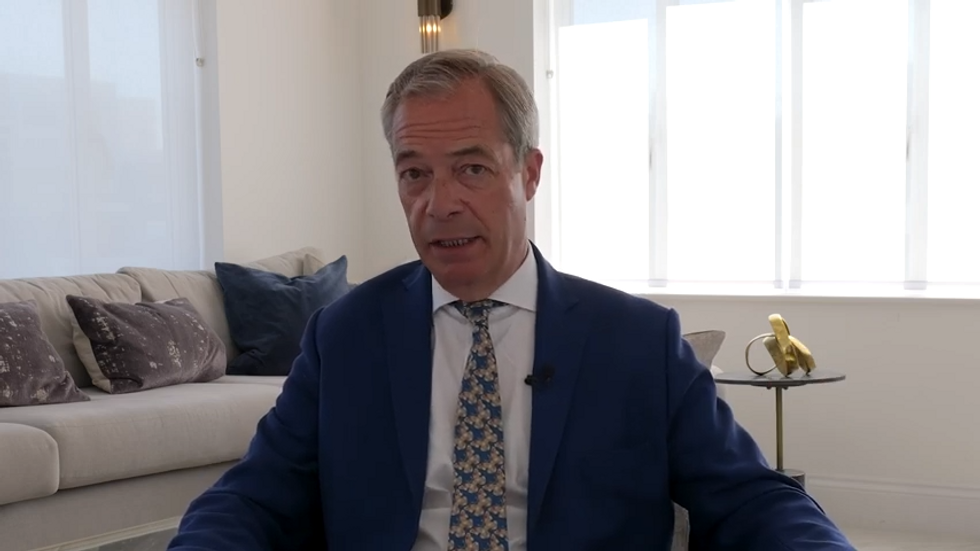Speculation over whether Elon Musk will donate to Reform UK has intensified after the tech billionaire met party leader Nigel Farage and his newly appointed treasurer Nick Candy on Monday.
The trio sat down at Donald Trump’s Florida resort Mar-A-Lago to discuss a range of issues, including the “Trump ground game” – and hinted about “ongoing discussions on other areas”, adding further fuel to the fire about a donation.
Following the meeting, Farage told the BBC that the pair “did talk about money” and that he is in “open negotiations” with the US tech billionaire about a potential donation to the party.
It comes after initial reports in November suggested that Musk is considering donating $100million (78million) to Reform.
Musk has so far denied reports of a splurge that large – while Farage has suggested he would welcome such a donation, telling GB News that his nascent party needs all the cash it can get as it looks to take on the two main parties.

Musk has so far denied reports of a splurge that large – while Farage has suggested he would welcome such a donation
STUART MITCHELL
Can Reform even accept a donation from Musk?
Technically, yes, but Musk would have to do it through a UK-registered company as he’s not a British citizen.
In the UK, the acceptance of donations by political parties is governed by the Political Parties, Elections and Referendums Act 2000 (PPERA).
Under PPERA legislation, a “permissible donor” is defined as:
- Individuals who are registered on an electoral register in the UK or are British, Commonwealth, or Irish citizens living abroad who were previously on the UK electoral register.
- Companies registered in the UK, which carry out business in the UK.
There have been discussions about capping donations to limit foreign influence, with some reports suggesting that the Government might consider such measures in response to potential large donations like this one from Musk.
For example, The Government is considering proposals from the Institute for Public Policy Research to limit individual and corporate donations to £100,000 a year.
However, as of now, there’s no cap in place.
The morality of such a donation is more of an open question.
Critics of the rumoured donation, such as Liberal Democrat Helen Morgan, argue that it could set a precedent for “dirty money” in politics.
Likewise, Lord Johnson, a Conservative Party co-chair, described the situation as Musk attempting to “buy” Reform, expressing concerns about foreign influence in UK politics.
 Nigel Farage
Nigel Farage What impact would a hefty donation from Musk have on the next General Election?
A one-off donation of £78million would have a seismic impact on the next General Election.
To understand why, look at the average spend on political parties ahead of the 2019 General Election.
During this period, parties received a total of £30.7million in registered donations.
Elon Musk’s rumoured donation would be approximately £48.3 million more than the total amount of registered donations received by all parties that year.
How this could translate into electoral success for Reform is an unknown, especially as many orthodoxies around campaigning have been upended in the age of social media and populism, but it would undoubtedly be a boon.
The biggest benefit would be around messaging. Such a substantial amount would allow for extensive advertising campaigns across various media platforms, including TV, radio, print, and digital spaces. This could increase the party’s name recognition and influence public opinion, particularly in key battleground areas.
Increased funding could also spruce up traditional campaign materials like leaflets, posters, and billboards could help in grassroots campaigning, making Reform more visible at the local level.
Furthermore, the funds could be used to hire experienced campaign staff, including strategists, data analysts, and communication experts, which are crucial for running a sophisticated election campaign.
Other potential benefits include:
- Investing in detailed polling and research could help Reform UK tailor their messages to different demographics, potentially identifying and capitalizing on voter discontent or niche issues.
- Organising larger, more impressive rallies or events could boost the party’s image, increase member morale, and attract more media coverage.